
Why Can’t I Save Money? Reasons and Fixes Explored
We’ll examine the most effective monthly money-saving strategies as well as some crucial money-saving blunders to stay clear of.
Have you ever asked, “Why can’t I make savings?” and found yourself wondering about the reasons why? The majority of us have been there. In actuality, less than 40% of American adults have enough savings to cover a $1,000 emergency.
Saving is a simple idea, but for some people, saving can be challenging. If you find it difficult to save money, it’s important to evaluate and understand why. The good news is that every problem with saving money has a solution, which we’ll be outlining below.
Reasons Why You Can’t Save Money
You must take charge of your finances if you want to be able to save money and do so consistently. Once you know why, you can make changes and start saving. Let’s dive into the reasons for your burning question “Why can’t I make money savings?”
You Don’t Have a Budget
Lack of a money management strategy is a major factor in your inability to save money. Don’t feel bad; without a budget, I can’t save money either. It is challenging to manage your finances without a budget.
Knowing where your money is going helps you manage it better. When you have a budget, it’s simple to see how much money you make compared to what you spend and how much you can save. A budget also enables you to identify areas where you can reduce your spending and increase your savings.
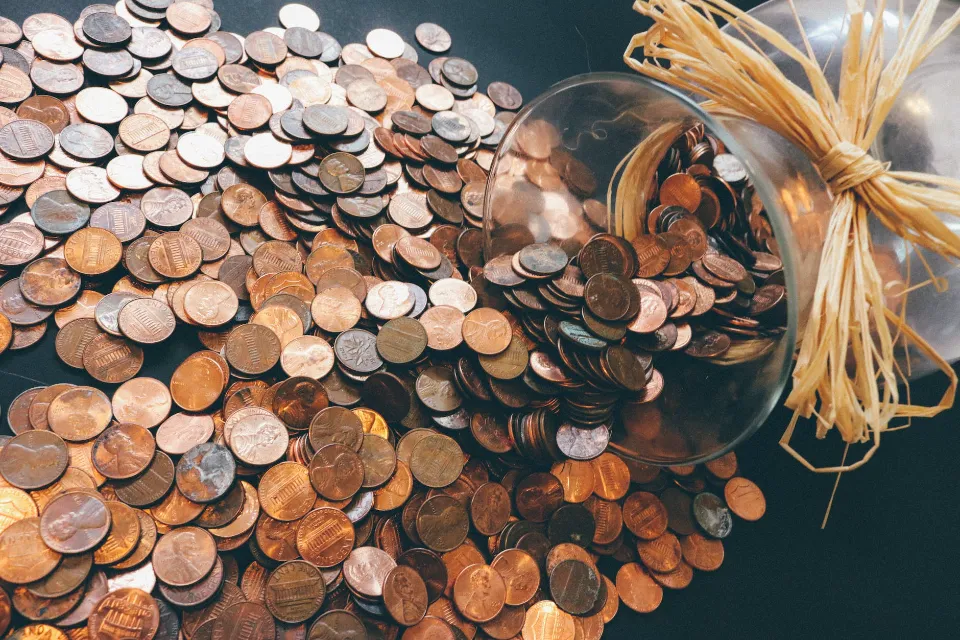
You Can’t Save Money Because You Have a Lot of Debt
Your ability to save money is reduced when you pay off debt. Repayment ties up your income and prevents you from saving money, whether your debt is the result of necessity or a poor decision.
We frequently fall into debt traps that make saving even more challenging. Instead of saving, you’re paying off debt. Therefore, since you lack the necessary savings, you must incur additional debt to pay for any unexpected expenses.
You’re Living Beyond Your Means
Savings are impossible when your expenses exceed your income. You can’t save money because you have nothing left over after your expenses exceed your income. When you use your credit cards like cash or income and treat them as such, it is very simple to spend more than you can afford.
When you can’t see the money leaving your hands or your bank account, making purchases that push the boundaries of what you can afford doesn’t seem like such a bad idea.
You have a lot of options for altering your spending patterns and habits. It’s possible that your housing costs exceed what you can comfortably afford. Maybe you eat out too frequently or spend too much money shopping.
You Don’t Earn Enough Money
Finding areas where you can make savings has been a major theme of our discussion up to this point. But you may be thinking “I don’t make enough money, so I can’t save any.”
It is true that there are only a limited number of ways to cut costs. It’s time to increase your income if you’ve reduced your spending to the bare minimum and you still aren’t able to save money.
By securing a raise, beginning a side business, developing passive income streams, or switching jobs with increasing pay, you can raise your income. It will be simpler for you to start consistently saving money if you are in a position where your income exceeds your living expenses.

You Can’t Save Money Because Saving is Not a Priority
You might believe that you should wait to start saving if your financial situation isn’t what you want it to be or if you’re not earning enough money. Because you haven’t developed the habit and saving isn’t a top priority, you can’t save money.
Even a small amount of saving strengthens your saving muscles so that when your financial situation does improve, you’ll already be in the habit. Additionally, little sums add up, and saving even a little money is better than not saving anything at all!
You Don’t Have a Savings Goal
Because you lack a clear objective to work toward, you are unable to save money. You can create a plan to achieve your goal once you have a goal in mind and something specific for which your savings will be used.
Additionally, it facilitates the understanding that little sums do accumulate. Being able to monitor your development and observe how close you are to achieving your goal is motivating and encouraging.
You Can’t Save Money Because You Don’t Have An Emergency Fund
“Unexpected” expenses are inevitable. They’ll eat up any money you had planned to save if you’re not ready for them.
Or you risk falling into the previously mentioned debt cycle by charging the expense(s) to a credit card and accruing more debt. When something unforeseen arises, having an emergency fund will prevent you from losing focus.
If you’re wondering why you can’t save money, it could be that you don’t have a safety net to pay for expenses that you know will arise eventually. It is simpler to save money for other purposes when you have emergency funds available.
You’re Paying for Subscriptions That You Don’t Use
If you use and value subscription services, they are fantastic. If you sign up for them, forget about them, or don’t use them, you’re wasting money that you could be saving each month. Then they’re not so great. This is one of the simplest things that you can change when you’re unable to save money and you need to be able to do so quickly.
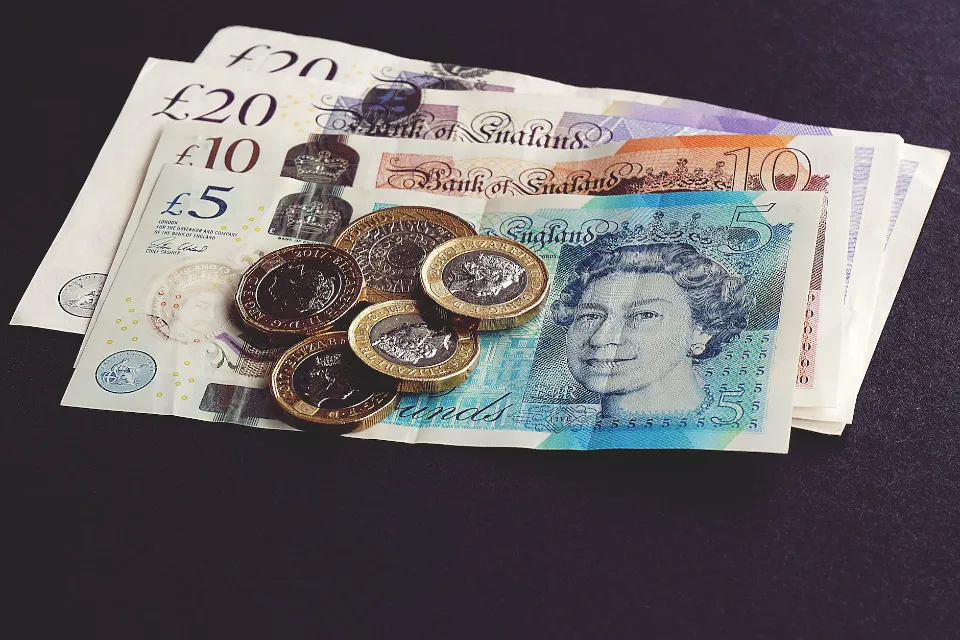
List all the subscriptions you are paying for by going through your bank account and/or credit card statements. Cancel all of your subscriptions for services that you no longer value and that you might not even be aware you are still paying for.
You’re An Impulse Shopper
Spending on things you don’t actually need or want is another reason why you can’t save money. While rewarding yourself occasionally is nice, excessive impulsive spending depletes your savings. especially if you keep buying things that just end up gathering dust because you didn’t need them.
When you feel like buying something, give it some thought before making an impulse purchase. Give yourself a day or two to mull it over and decide whether you really want to buy it. It’s common to confuse needs and wants, so if you’re having trouble saving money, start by making some of these sacrifices.
You Aren’t Paying Yourself First
If you find yourself asking, “Why can’t I save money” but aren’t paying yourself first, then that’s a big reason why you can’t save. The secret to consistently increasing your savings is to save money before you spend it.
Saving is frequently put off until last, and as a result, you only save what is left over after expenses and spending. Paying yourself first avoids this. You can prevent yourself from using up all of the available funds by putting savings aside before anything else.
Ways to Save Money Each Week/Month
The suggestions that follow are all practical methods for increasing your monthly savings and accelerating the growth of your bank account.
- How to Save Money Building a House? 11 Simple Tips
- Why Can’t I Save Money? Reasons and Fixes Explored
- How to Save Money at Disney World 2023? 15 Tricks
- 11 Tips on How to Stop Gambling and Save Money
- How to Save Money on Flights? 11 Ways
Analyze Your Current Monthly Expenses
It might be a problem with spending too much if you feel like you can’t save money or never have enough at the end of the month. Due to the fact that small expenses can add up, you might not be aware of where the majority of your spending takes place or where your extra cash is going.
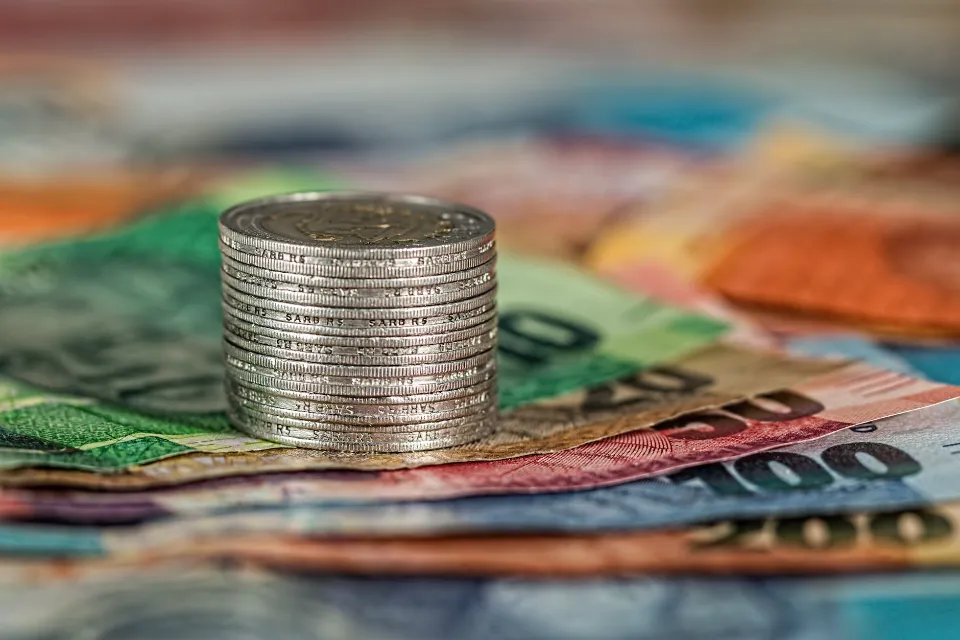
And it goes without saying that you’ll start saving money faster if you can reduce some of this spending. Therefore, start by reviewing your weekly and monthly spending. To determine exactly where your money is going, look at your credit card bill and other expenses.
Organizing your list of expenses into mandatory and optional categories is also beneficial.
Write Out a Budget
Although creating a budget and outlining your financial goals and spending isn’t the most exciting personal finance advice out there, it really does help your financial situation. If you set a goal for how much money you want to spend each month, managing your money becomes much simpler.
So try to write a goal for the maximum amount you’ll spend next month. This will enable you to plan for all the bills you’re accountable for and determine whether you’re spending more or less than you anticipated.
In order to determine whether you will be able to meet your financial and savings goals, you can also compare your income to your anticipated spending. You can determine how much money you need to start saving and how quickly you can add extra funds to your savings by creating a budget and comparing it to your monthly income.
Put Aside Savings First Each Month
Try saving money first each month if you find it difficult to control your spending and simply are unable to save money because you spend your entire monthly income. Put a specific amount into your savings account or investment account as soon as you receive payment.
After that, deposit your spending cash into your checking account. After separating your funds, only use the cash in your checking account and treat your savings account as though it were off-limits. Better yet, open a non-touchable investment account and deposit your regular savings there.
One of the best ways to develop self-control and save more money is to do this.
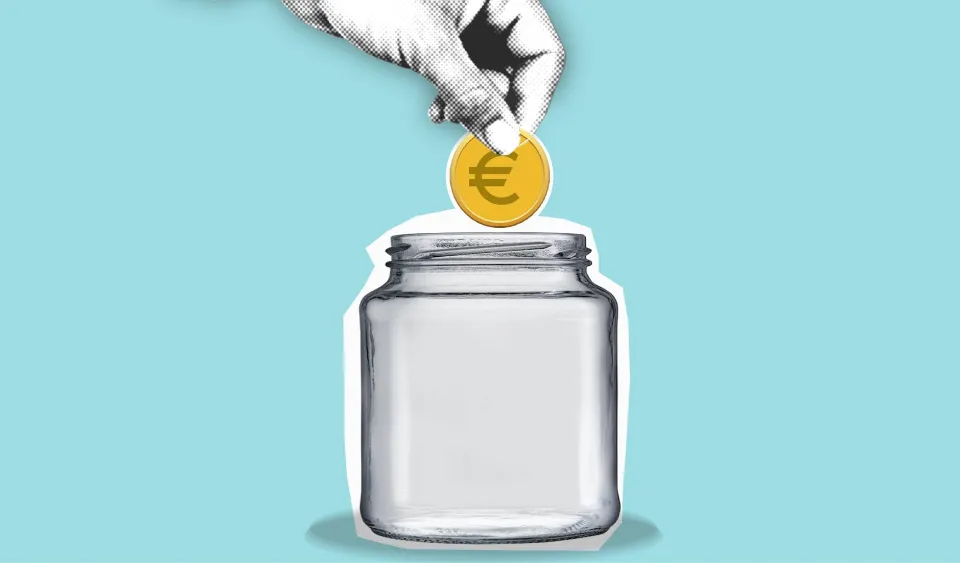
Prioritize Paying Off Credit Card Debt
Even though it may be tempting to start saving right away or to create an emergency fund, it’s a good idea to pay off your credit card debt first if you have one you use one on a regular basis.
The sooner you pay off your card and lower or even avoid paying interest, the more money you’ll be able to save each month. Credit card debt typically carries a very high-interest rate, frequently 18% to 20% or higher.
Aim to pay off the entire balance on your credit card each month to avoid incurring interest. If you pay off the credit card debt first, your bank account will increase more quickly in the long run.
Set a Specific Savings Goal/Target
Your motivation will be maintained and saving money will be more enjoyable if you have a target in mind. If you have a savings goal in mind, you’re more likely to contribute to your savings or investment account on a regular basis. Additionally, you’re less likely to waste that money on unnecessary items.
So I highly recommend setting a goal for your emergency fund and savings/investment account, that you’d like to hit at the end of the year. Also, think about establishing monthly savings targets.
Focus on Earning More in Your Job
Even if you follow every other step and advice on this list, having a low income makes it much harder to save money. So, as you work toward your financial objectives, don’t forget to also increase your pay.
No matter who you are, there are some costs that are simply unavoidable and expensive. However, those costs become much less significant if your monthly income is $10K as opposed to $2K your capacity for earning money and skill advancement.
Invest in yourself by reading books, enrolling in relevant online courses, and taking other steps to further your education.
Limit Dining Out
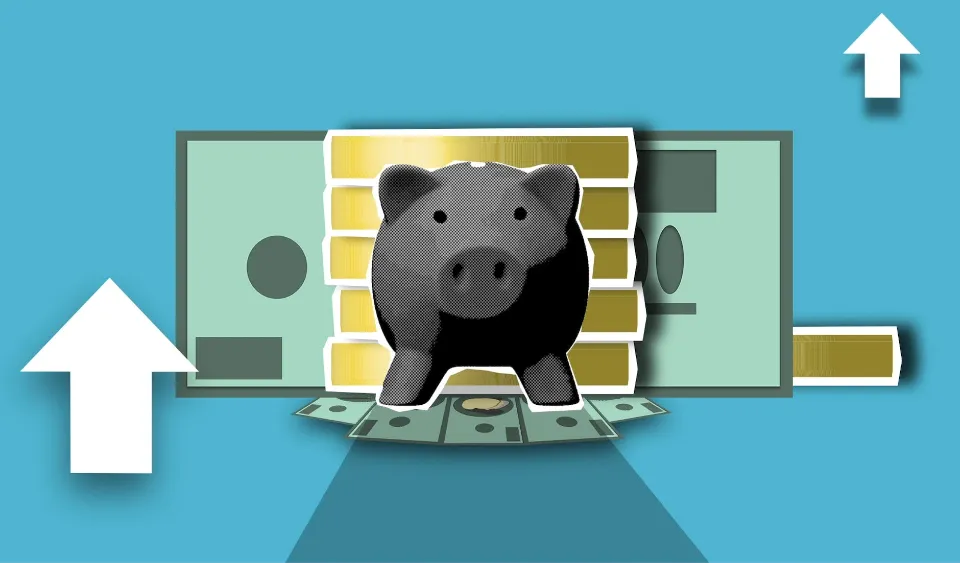
You might not be able to save money if you frequently eat out. It can be more difficult to quickly save money if you frequently eat out or even just buy coffee. To save money more quickly each month, think about making coffee and cooking more meals at home.
I was in my 20s at the time, and I was able to save money much more quickly because I used to bring my lunch to work rather than buy it, and I only went out to eat once a week. I found that meal planning and cooking at home sped up my debt repayment and savings rate.
Buy Used Items
It’s enticing to purchase that new automobile, cellphone, laptop, etc., yet you can often find a used alternative. Even if buying new is within your means, think about the amount you’ll save by buying used and then choose the option that will help you reach your savings objectives.
As interest payments will prevent you from saving in the future, avoid taking on debt at all costs. Consider how much less your monthly car payment would be if you bought a used car before you purchase that new one. To save even more money, you could also think about using public transportation.
According to my observations, many people behave as though their entire income is disposable and then find themselves in a bind financially if they lose their jobs. Even in the best-case scenario, where they remain at the job for years, they continue to spend all of their monthly income without increasing their savings.
Negotiate to Work from Home
You can frequently save money by setting up to work from home instead of commuting, regardless of whether you’re looking for work or currently employed. You’ll spend less money on transportation, but you’ll also have more time for work, a side business, etc.
Since you won’t have to spend money on office lunches and can make meals at home, you’ll probably also save money on food.
So, if you’re having trouble making ends meet or simply want to reach your savings targets faster, talking to your employer about the possibility of working from home is a wise move. As a test period, you can start by asking to work from home for two or three days each week.

Buy Necessities in Bulk Or When on Sale
Waiting until essentials like paper towels are on sale and stocking up then is one of the more useful money-saving tips to use each month. or purchase these items in bulk rather than individually, which frequently results in a discount. Inquire about bulk discounts at the various retailers you frequent.
Even products like protein bars are frequently less expensive when purchased in a box or case as opposed to a single bar. You need only ask the shop. Without affecting your way of life at all, finding bulk discounts and deals on food and household goods can help you save more money faster.
Reduce Cable TV and Cellphone Bills
If you haven’t looked closely at your cable bill, cell phone bill, etc., review those documents to see exactly how much you spend each month, and for what services. Consider whether cutting your cellphone data usage, cutting out cable channels, etc. could result in financial savings.
When you call your provider and let them know you can’t afford to pay the bill as it is, they may be able to negotiate a lower monthly payment for you. They might give you a discount or suggest a less expensive plan.
Since you pay these bills every month, even a small amount saved will add up to a sizeable sum at the end of the year.
Consider Living With Roommates
For most people, housing expenses rank among their highest expenses. Consider renting out a room in your home if you need the extra cash. Consider getting a second roommate (or a first roommate if you live alone) if you rent a home to help with rent payments.

This can significantly lower your monthly housing payments, enabling you to save more money each month.
Look for Cheaper Alternatives to Brand-Name Products
It’s frequently possible to purchase a less expensive brand of a particular product and still get a high-quality item that won’t lower your standard of living.
You could choose a less expensive brand of cellphone instead of the pricey iPhone, for instance. An inexpensive television brand is also an option. Regardless of the TV you choose to install in your home, you will get used to it. Either way, it won’t alter your life.
Thus, don’t necessarily choose the best brand; instead, make a reasonable decision. More money can be saved by doing this.
Final Thoughts: Save Money Now
It can be difficult to save money. It’s a habit that can also be changed. Find your areas of weakness when it comes to saving money, and then come up with solutions that will increase your financial future’s security.
Making more money or spending less are really the only two main levers to pull when it comes to saving money.


